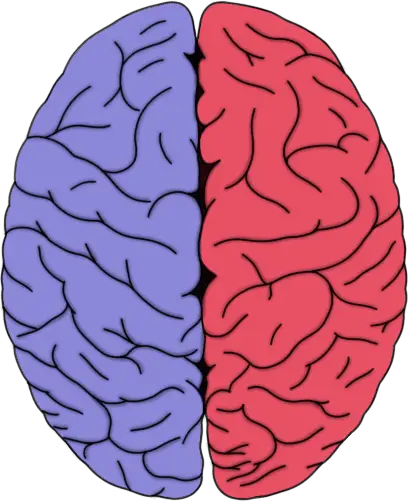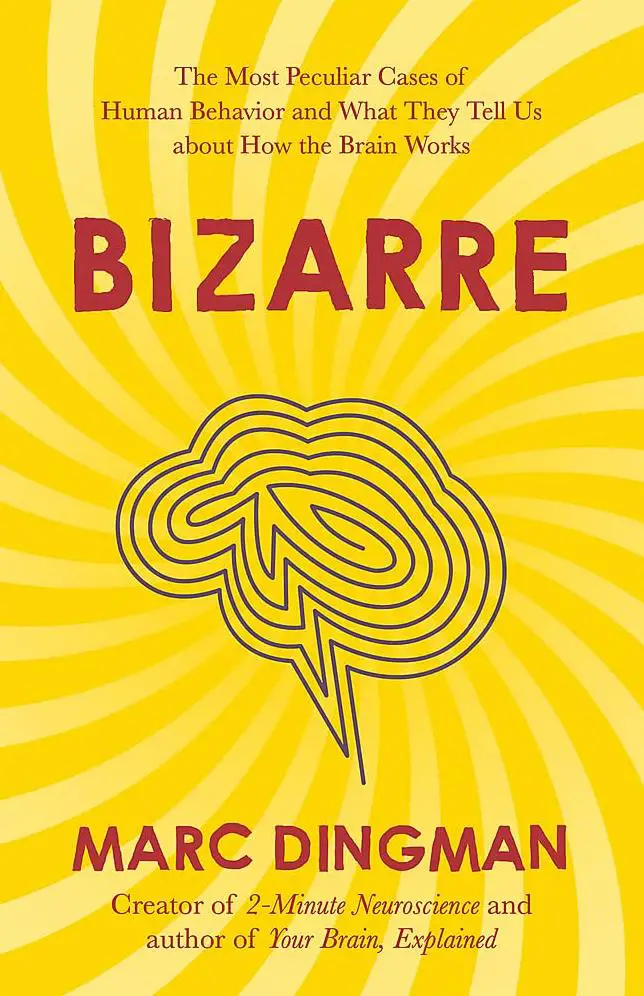Limitations of the consensus: How widely-accepted hypotheses can sometimes hinder understanding
To those of us who believe strongly in the scientific method, it really is the only approach to understanding the relationship between two events or variables that allows us to make assertions about such relationships with any confidence. Due to the inherent flaws in human reasoning, our non-scientific conclusions are frequently riddled with bias, misunderstanding, and misattribution. Thus, it seems there is little that can be trusted if it hasn't been scientifically verified.
The scientific method, however, is a human creation as well, and therefore it is less than perfect; at the very least our use of it is flawed due to the fact that human foibles inevitably creep into the process of innovation. One example of this can be seen when we mix our enticement to make scientific discoveries with financial incentives. When this occurs it makes the likelihood of malfeasance much higher, and causes tainted results to be a more distinct possibility. But there are many other examples of flaws in the scientific process that are a bit more subtle--and certainly less heinous--than fiscally-influenced dishonesty. Another pitfall, for instance, stems from the natural human bias toward favoring the familiar, understandable, and available ways of explaining a phenomenon over those that are less so.
This cognitive bias is generally most detrimental to the understanding of phenomena that are, as of yet, not well understood. For, when we gain some insight that we believe helps us to illuminate the mechanism underlying a poorly-understood phenomenon, we tend to build off of that insight. It serves as the foundation for many closely-related hypotheses and experiments to test those hypotheses. If these experiments are generally supportive of the new perspective, then our understanding of the phenomenon begins to form around that viewpoint. The new perspective then becomes the widely-accepted way of thinking about the phenomenon.
This may be fine if the newly-devised hypothesis ends up being indisputably accurate, as there is nothing wrong with building off of previous ideas to further overall understanding--indeed, this is the way the growth of human knowledge generally works. The problem occurs, however, when a sense of unanimity develops around the new hypothesis. This widespread agreement then can tend to limit the creative exploration of other mechanisms: it may make us quicker to disregard a competing hypothesis, less capable of obtaining grant funding to explore one, and sometimes less likely to pay attention to shortcomings in the consensus hypothesis itself. Thus, if a consensus hypothesis does not tell the full story (which often they do not), its acceptance may actually hinder scientific progress.
The dopamine hypothesis of schizophrenia
The dopamine hypothesis of schizophrenia is arguably a good example of this conundrum. Schizophrenia is a complex disorder that affects over 21 million people worldwide, but it can manifest in a drastically different way from patient to patient. It is characterized by a diverse group of symptoms that generally involve some detachment from reality, disordered thought processes, and/or impaired social interaction or withdrawal. The symptoms are commonly grouped as negative symptoms, which involve the absence of typical behaviors (e.g. limited speech, lack of affect), and positive symptoms, which involve the presence of unusual behaviors (e.g. hallucinations, delusions). Adding to the byzantine nature of the disorder, there are at least five subtypes of schizophrenia that distinguish schizophrenics by general trends in symptomatology. For example, paranoid schizophrenics often experience delusions of persecution along with hallucinations, while catatonic schizophrenics display a predominance of negative symptoms that include lack of movement, motivation, and emotion. Generally, the first clear symptoms of schizophrenia emerge in adolescence or adulthood in the form of an initial break with reality called a psychotic episode. The course of the disorder, however, is variable; some patients experience recurring psychotic episodes followed by remission of symptoms, while others suffer from constant symptoms that severely impact cognition and functioning on a daily basis.
The dopamine hypothesis of schizophrenia was formulated in the 1960s when it was discovered that drugs that can be used to treat schizophrenia also act as dopamine receptor antagonists. Because these drugs--which as a class are referred to as antipsychotics or neuroleptics--help to alleviate the positive symptoms of schizophrenia, it was assumed that the mechanism underlying schizophrenia must involve an increased level of dopamine neurotransmission. In other words, if antipsychotic drugs block dopamine activity and improve schizophrenic symptoms, then those symptoms must be caused by too much dopamine activity. Dozens of dopamine antagonist antipsychotic drugs have been developed since the 1960s with this reasoning in mind.
Further support for the dopamine hypothesis of schizophrenia was inferred from a phenomenon known as stimulant-induced psychosis. In some individuals who don’t have a history of psychosis, when high doses of stimulant drugs like amphetamine are taken (or even when normal doses are administered over long periods of time), the effects of the drugs appear similar in some ways to a psychotic episode. Because the drugs that can have this effect include as one of their primary mechanisms of action the increasing of dopamine levels, researchers suggested this strengthened the hypothesis that high dopamine levels are associated with schizophrenia. That is, if increasing dopamine levels through drug use can cause something that resembles a psychotic episode then it is likely psychotic episodes that occur naturally are also due to high dopamine levels.
Bolstered by these pieces of evidence, the dopamine hypothesis has guided schizophrenia research and drug development until the present day--and continues to do so. Over that time, additional research that supports the hypothesis has accumulated. For example, when amphetamine is administered to schizophrenic patients, the patients display greater increases in dopamine levels in response to the drug than healthy controls do. This supports the hypothesis that dopamine neurotransmission is dysregulated in schizophrenic patients, and suggests it may be elevated at baseline. Schizophrenic patients have also been found to have altered presynaptic dopamine function, including an increased capacity for dopamine synthesis and increased dopamine release from presynaptic neurons. The number of studies that have supported the hypothesis that dopamine signaling in schizophrenic patients is abnormal is actually quite extensive.
Regardless, serious questions about the role of dopamine in schizophrenia remain. Some still argue it isn't clear that there are dopaminergic abnormalities in the brains of schizophrenic patients, but even if we accept the premise that there are it remains undetermined if these differences in dopamine activity are the primary cause of the symptoms of schizophrenia. Despite the fact that antipsychotic drugs reduce activity at dopamine receptors, approximately 1/3 of schizophrenic patients don't respond to most antipsychotics. This suggests that some other mechanism must be at play in at least a significant minority of patients. Also, dopaminergic abnormalities alone don't seem to explain the negative symptoms of schizophrenia, as these are more resistant to the therapeutic effects of antipsychotic drugs than positive symptoms are. Indeed, some evidence even suggests negative symptoms may be improved by increasing dopamine levels. Furthermore, antipsychotics vary significantly in their affinity for the dopamine receptor, and that affinity doesn't always predict the clinical effectiveness of the drugs. Some antipsychotics have an affinity for serotonin receptors as well, and in some cases serotonin receptor affinity can predict clinical effectiveness, which suggests a role for the serotonin system in the mechanism underlying schizophrenia. And direct evidence for the hypothesis is lacking; when brains have been studied post-mortem or cerebrospinal fluid has been sampled to test for excessive dopamine activity, the results have been inconsistent.
These shortcomings have prompted a number of revisions of the dopamine hypothesis. For example, it has now been suggested that schizophrenia is characterized by both excessive dopamine transmission and low dopamine activity in different areas of the brain. According to this perspective, dopamine underactivity is associated with negative symptoms and overactivity with positive symptoms. Some researchers, however, have begun to consider other neurotransmitter systems as playing a central role in schizophrenia. One hypothesis that is gaining considerable support suggests that there is reduced glutamate activity in the brains of schizophrenics. This glutamate hypothesis doesn't argue that dopamine activity is normal in schizophrenia, but rather that glutamate dysfunction may play an equally important role.
Thus, after 40 years or so of the dopamine hypothesis guiding schizophrenia research, more and more investigators are now considering it to be unlikely dopamine dysfunction fully explains schizophrenia. Of course, it would make sense that such a complex disorder cannot be explained by fluctuations in the levels of just one neurotransmitter. In fact, if the dopamine hypothesis had been devised today, it may have had a more difficult time gaining such widespread support, as the field of neuroscience is now much more wary than it was a few decades ago of explanations for complex disorders that focus primarily on one neurotransmitter (or one gene, brain region, etc.); we have learned from experience that these explanations often end up being gross oversimplifications.
But has the dopamine hypothesis hindered our understanding of schizophrenia? It's really impossible to know for sure. When one hypothesis dominates an area of research for a prolonged period of time, however, it usually does have a significant influence on that research. Widespread acceptance of the hypothesis can create a situation where challenges to it become less frequent, and competing hypotheses are often not given as much attention. Researchers may even find it easier to get grants funded when those grants involve an investigation of some aspect of the well-known hypothesis than when they involve venturing out into less familiar territory. This can have a restrictive effect on research, causing it to be more difficult to explore alternative hypotheses and thus actually making the consensus hypothesis more popular by default (because there are no viable alternatives). Thus, perhaps if the dopamine hypothesis hadn't had such extensive support, we would have seen competing perspectives like the glutamate hypothesis garner attention earlier on.
Additionally, when there is a consensus hypothesis, investigators may be more likely to disregard research results that disagree with it. After all, if everyone knows high dopamine levels cause schizophrenia, then there must be something wrong with the methods of an experiment that indicates otherwise. This type of thinking can contribute to publication bias, a tendency to only publish favorable results and discard findings that don’t support one’s hypothesis. This type of bias can serve to further propagate a consensus hypothesis as potentially contradictory research results are considered quirky aberrations instead of leads worth following. Schizophrenia research doesn't display clear evidence of a large influence of publication bias, but it doesn't seem to be completely clear of its influence, either.
Regardless, one could argue that a concentrated focus on one hypothesis is an important part of scientific investigation. It allows for the organization of our thoughts, and through the reduction of a complicated process into its component parts, helps us to make sense of at least a portion of what is going on. Successful experiments supporting a consensus hypothesis may also inspire increased experimentation in and attention to an area of research, which in and of itself may speed up the process of coming to understand a phenomenon more fully.
However, even if there are benefits to this increased focus, it may be best to still maintain that focus with the caveat in mind that just because a hypothesis is widely accepted does not mean it is correct. It may be useful to constantly remind ourselves that we still know very little about neuroscience, and that in most cases the simpler the hypothesis seems to be, the more likely it is to be lacking. Continuing to seek out greater complexity instead of focusing all our efforts on finding support for an easy-to-explain mechanism may allow us to avoid falling into the trap of the consensus hypothesis, which can in some ways limit the ability of our understanding to grow.
Moncrieff, J. (2009). A Critique of the Dopamine Hypothesis of Schizophrenia and Psychosis Harvard Review of Psychiatry, 17 (3), 214-225 DOI: 10.1080/10673220902979896

